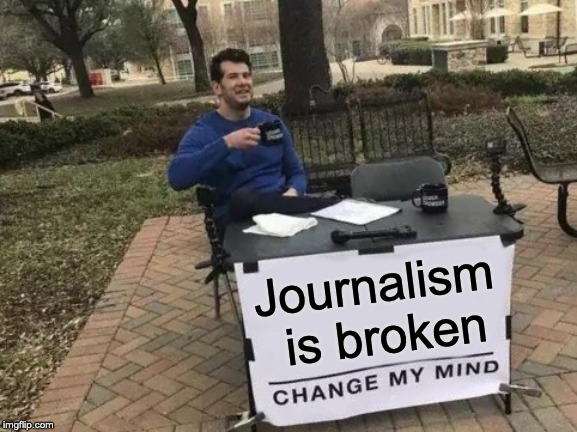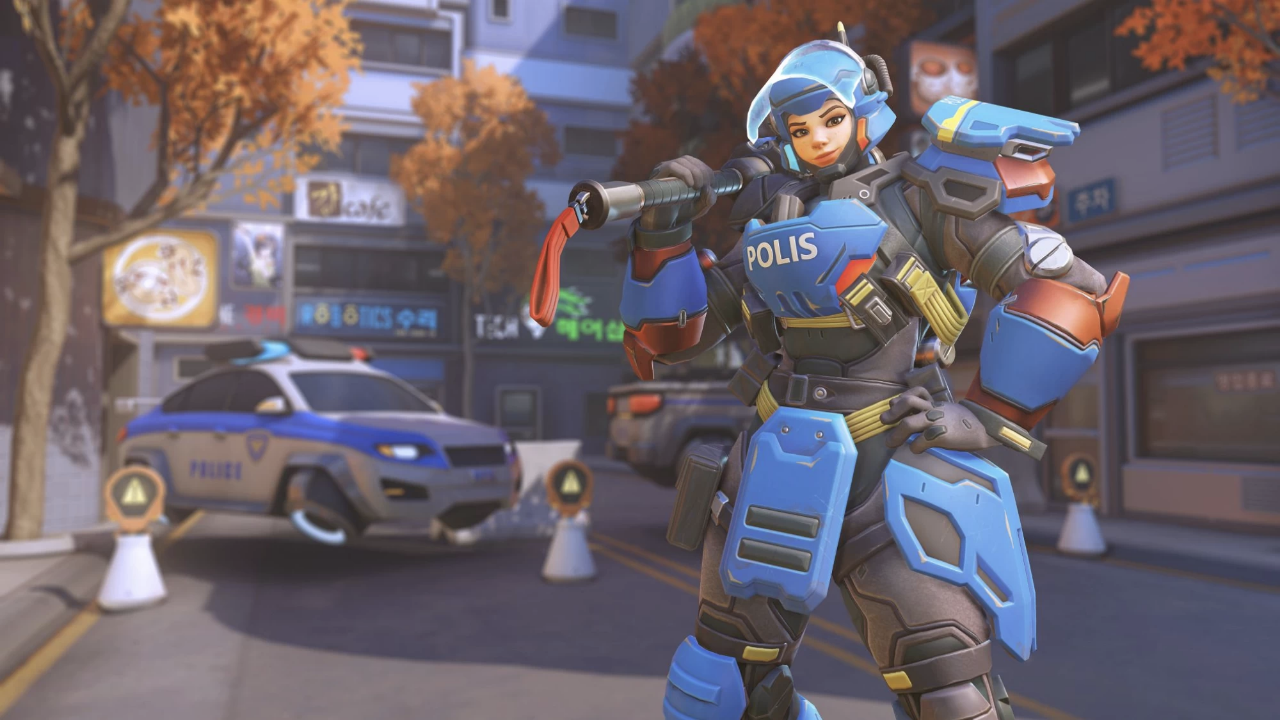
This is an editorial piece. The views and opinions expressed in this article are those of the author and do not necessarily represent the views and opinions of, and should not be attributed to, Niche Gamer as an organization.
It doesn’t seem I can go an entire week without having to dive into the ludicrous shenanigans of gaming and tech journalism. Originally, my Friday editorial for this first week of June was going to be something a bit more lighthearted and fun, but instead, thanks to the obtuse workings of a imbecilic writer at CNET, my plans have changed. So sit down, strap in, and cover your eyes, as this room is about to heat up because this writer right here is fired up, and in the poetic words of Howard Beale, “I’m as mad as hell, and I’m not going to take this anymore!”
Yesterday, Ian Sherr, an editor-at-large over at CNET wrote an article headlined, “Meet the angry gaming YouTubers who turn outrage into views.” The entire gist of the piece is to highlight content creators on the video sharing platform who dive headfirst into covering the absurdity and outrage of various entertainment mediums. Some may call them reactionaries, others see them as journalists, and another few simply view them as grifters who have found their hustle and made it a success. No matter where one may stand, these creators are still men and women who have found their worth in providing content for people who consume it by the thousands, whether you like them or not.
So Ian’s article is all the more galling as his goal isn’t to merely highlight them. No, in the same week that Steven Crowder is at war with Vox, another media entity trying to deplatform and demonetize someone, CNET’s goal was to follow suit. They dislike certain Youtubers and what they represent, so these journalists readied their cannons and blew their load, all in an effort to tarnish creator’s images and make them unappealing to advertisers and platform holders at large.

As Ian Sherr said on twitter: “As to what happens from all this? I don’t know. I still don’t have a clear answer to my original question: Why is YouTube rewarding negativity so much? YouTube declined to comment for the story.” He then followed up with this update: “YouTube statement: ‘We have strict policies that govern what kinds of videos we show ads on, and videos with hateful content violate those policies. If we find videos that are showing ads and shouldn’t be, we remove ads immediately.’”
It doesn’t take much brain power to see what his goal ultimately is, which is laughably pathetic given where this industry is as a whole.
The CNET headline is worth mentioning again. “Meet the angry gaming YouTubers who turn outrage into views.” Apparently Ian’s willfully ignorant, or he’s blatantly ignoring the state modern journalism seems to have found itself within.
In the article he writes:
Starting last year, a new cadre of negative YouTube gaming commentators came to prominence. Almost in unison, they each enjoyed spikes in audience and view counts, attracting hundreds of thousands of subscribers. That translated into millions of views a week as they dissected the video game industry’s missteps, misadventures and controversies. The views get rewarded by YouTube in ad dollars.
Their negativity comes in many forms. Some YouTubers produce a stream of videos criticizing every imaginable fault a game could have. Visual bugs. Awkward controls. Stupid storylines. Others obsess over game developers’ attempts to fix glitches. There are commentators who rail against efforts to upsell players, who typically shell out $60 for a game. These microtransactions, as they’re known, can include different character designs, new looks for weapons and additional stories, and are a source of constant irritation for vocal commentators, who see them as a rip-off. Others veer into criticism of outspoken game company executives. Some attacks get personal, criticizing members of the gaming community for their looks or perceived political beliefs.
So Ian, you wanna talk about turning outrage into views? Oh, we’re going to talk about just that, because, and I say this directly towards you as I’m hoping this piece finds its ways in front of your eyes, you and your ilk are nothing but partisan activists not driven by a passion for gaming, tech, or even truth, but driven by an urge to peddle outrage-driven modern puritan nonsense. You are hacks, pure and simple.
Worst of all though, is how hypocritical these media publications actually are.
Outrage is what drives traffic for most of these sites. Or, at least I imagine it must be, lest these people always have a stick up their ass, also a very possible situation. Yet, you don’t see Ian writing articles about writers who turn outrage into readers.
To quote my own editorial from last week (about censorship funny enough), here are just a few small samplings of what these game writers have complained about:
“Vice Gaming, formally Waypoint, just last week got anxiety because Overwatch has an optional skin which allows certain characters to dress up as law enforcement. Deadspin cried last September because Spider-Man aids the NYPD. Pastemagazine a handful of months ago was upset because you kill monsters in Monster Hunter. Polygon were broken up over Rage 2’s depiction of mutants. PC Gamer brought up how Rimworld was “heteronormative” in their review of the game. Meanwhile Eurogamer spent much of its Dead or Alive 6 review bitching about how sexy the characters are. Rockpapershotgun absurdly wishes Far Cry 5 featured more racism and fascism. And Kotaku falsely attacked Persona 5 over a nonexistent ‘ableist slur.’

All articles which riled up rage, and in some cases got game developers dodging the balls of hate being thrown their way. But sure Ian, get pissy because Youtubers complain about the cost of microtransactions; at least they aren’t shills following in the footsteps of Vice and throwing a tantrum because a character can cosplay a cop.
Ian asked himself “Why is YouTube rewarding negativity so much,” but at least 50 videos discussing why Brie Larson’s ‘Captain Marvel’ kinda sucks aren’t parading around pretending to be a righteous and moral authority as they simultaneously throw others to the wolves. It’s content recorded by self-made entertainers poking fun at an arguably bad movie. So what? Don’t like it, don’t watch it. I can attest that it’s a pretty easy thing to do. Not much different than the countless gamers who choose to ignore CNET’s content or those articles listed above.
This new breed of gaming criticism and journalism is activism wearing the most pathetic of disguises. Now there’s no doubt some people reading this will feel the same way about various Youtubers who turn outrage into views. Some definitely are driven by an urge to one-up the other side and to score points for their political and/or social affiliations. However, these creators aren’t bona fide journalists, nor are they calling for the mass deplatforming of others; this is a key distinction.
Right now the media landscape at large is being used as a weapon to bludgeon dissenting opinion. Journalists are tearing after content creators with a goal of not just silencing them, but killing their financial stability too.
In a year where Univision sold off Gawker Media at a loss, Disney took a $353 million write-off on Vice Media, Variety gaming is being shut down, and Buzzfeed and other media entities laid off hundreds, there almost appears to be a vindictive edge to them chasing Youtubers who are succeeding without the backing of a major corporation.
But while jealousy is a bad look, scarier still is the prospect that this is all a gearing up towards 2020.

Carlos Maza, the ‘journalist’ working on deplatforming Steven Crowder, is an activist formerly with Media Matters, the left-leaning nonprofit. Vox, his current home is a far left leaning publication itself, and so just a few years removed from the media calling 2016 wrong, and Youtube, internet, and meme culture swaying an election, one must ask, is this all an effort to silence those that could do it again come the next election cycle? The name drop of Trump in Ian Sherr’s piece suggests it is. Or Maza’s fear of Trump’s presidency being ‘normalized’.
One can’t say for sure, and this article itself is merely an opinion piece, but ask the likes of those who have already been deplatformed this year, and I’m sure they would probably agree.
There’s nothing wrong with journalists expressing their political views. Anyone who follows me on Twitter knows that I myself am a fireball of opinions, but there comes a problem when ideologies begin to affect coverage, and what we’re seeing today is an environment where not just gaming and tech journalists are letting their views dictate what aspects of gaming culture they praise, and what others they try to censor, but journalism as a whole is falling into this trap.
There’s a lot of Youtubers I disagree with. Hell, I don’t even watch Steven Crowder as his content isn’t for me, but it’s time to support those the media is trying to censor. Not because one must agree with what they say, but because we agree with their right to say what they please.
Stand against censorship, as once we lose our freedom to expression, we aren’t getting it back so easily.
Disclosure – Jeremy Hambly (aka TheQuartering) is part of CNET’s hit-piece. While his name doesn’t appear in this article, it’s still worth mentioning that I am an acquaintance of his and worked for a very brief time at his website Exclusively Games.